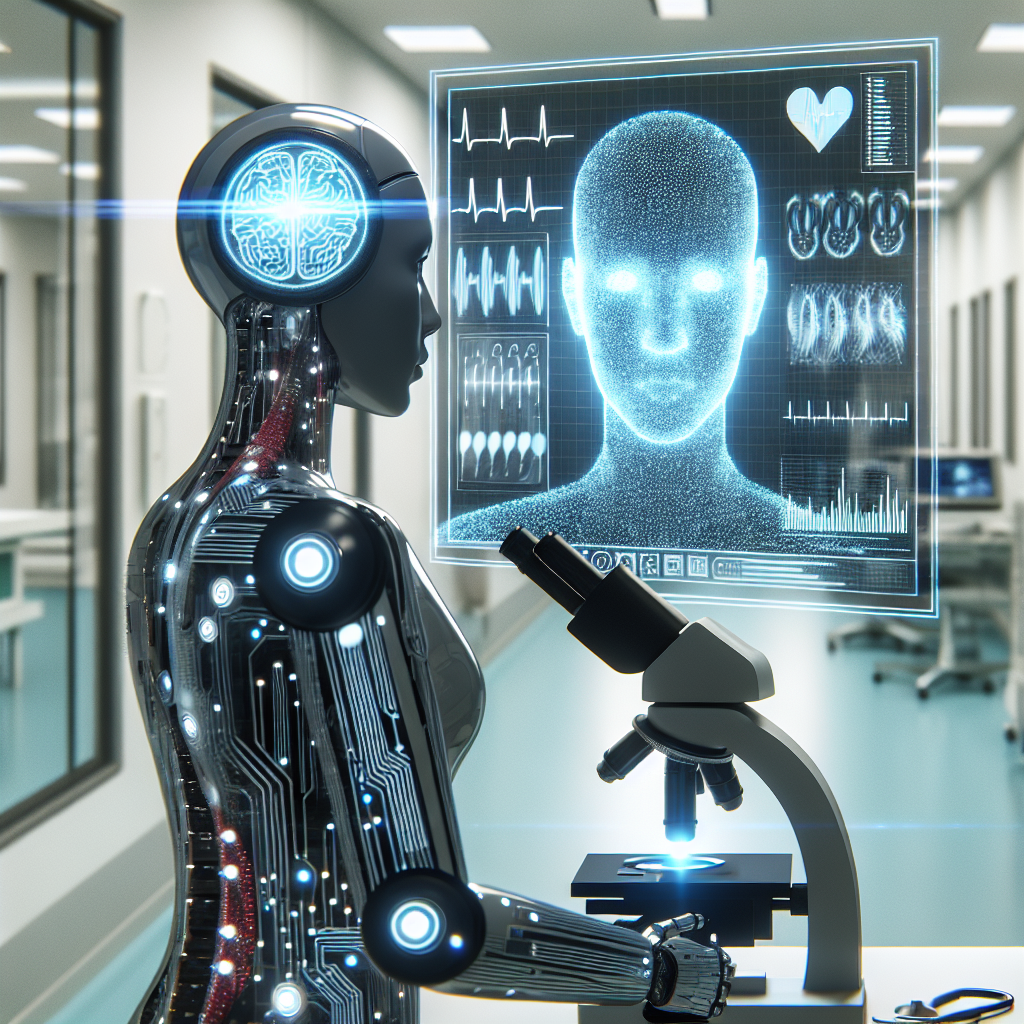The Impact of AI on Healthcare Delivery: Enhancing Patient Care and Medical Diagnosis with Predictive Analytics
Artificial intelligence (AI) has revolutionized many industries, and healthcare is no exception. With the advancements in AI technology, healthcare providers are able to improve patient care and medical diagnosis through the use of predictive analytics. This has led to more accurate and efficient treatment plans, reduced medical errors, and improved patient outcomes. In this article, we will explore the impact of AI on healthcare delivery and how it is enhancing patient care and medical diagnosis.
1. Improved Patient Care
AI has the potential to significantly improve patient care by providing healthcare providers with valuable insights and recommendations based on data analysis. By analyzing patient data such as medical history, symptoms, and test results, AI algorithms can help identify patterns and trends that may not be apparent to human healthcare providers. This can lead to more accurate diagnoses, personalized treatment plans, and better patient outcomes.
One of the key ways AI is enhancing patient care is through predictive analytics. By using machine learning algorithms, healthcare providers can predict the likelihood of a patient developing a certain condition or experiencing a particular health outcome. This can help healthcare providers intervene early and take preventive measures to mitigate the risks, ultimately improving patient care and reducing healthcare costs.
Additionally, AI can help streamline administrative tasks and improve operational efficiency in healthcare delivery. For example, AI-powered chatbots can assist patients in scheduling appointments, answering common medical questions, and providing personalized health advice. This can help reduce wait times, improve patient satisfaction, and free up healthcare providers to focus on more critical tasks.
2. Enhanced Medical Diagnosis
AI is also transforming medical diagnosis by providing healthcare providers with advanced tools and technologies to improve accuracy and efficiency. With the use of AI-powered imaging and diagnostic tools, healthcare providers can analyze medical images such as X-rays, MRIs, and CT scans more quickly and accurately than ever before. This can lead to earlier detection of diseases, more precise diagnoses, and better treatment outcomes for patients.
For example, AI algorithms can analyze medical images to detect subtle abnormalities or patterns that may be missed by human radiologists. This can help healthcare providers make more accurate diagnoses and develop more effective treatment plans. In addition, AI can help healthcare providers prioritize and triage patients based on the severity of their condition, ensuring that those in critical need receive timely care.
Furthermore, AI can assist healthcare providers in predicting the progression of diseases and identifying high-risk patients who may require additional monitoring or intervention. By analyzing patient data such as demographics, medical history, and lifestyle factors, AI algorithms can help healthcare providers identify patients who are at increased risk of developing certain health conditions and provide targeted interventions to prevent or manage these conditions.
3. FAQs
Q: Is AI replacing human healthcare providers?
A: No, AI is not replacing human healthcare providers. Instead, AI is augmenting the capabilities of healthcare providers by providing them with advanced tools and technologies to improve patient care and medical diagnosis. Healthcare providers will continue to play a critical role in delivering compassionate care and making clinical decisions based on their expertise and judgment.
Q: Is AI safe and secure for use in healthcare delivery?
A: Yes, AI technologies used in healthcare delivery are designed to comply with strict privacy and security regulations to protect patient data. Healthcare providers are required to adhere to industry standards and best practices to ensure the safety and security of patient information when using AI technologies. Additionally, healthcare providers should regularly update and monitor their AI systems to identify and address any potential security vulnerabilities.
Q: How can healthcare providers leverage AI to enhance patient care and medical diagnosis?
A: Healthcare providers can leverage AI to enhance patient care and medical diagnosis by investing in AI-powered tools and technologies that can analyze patient data, provide predictive analytics, and assist in medical decision-making. Healthcare providers should collaborate with AI experts and data scientists to develop and implement AI solutions that meet the specific needs of their practice and improve patient outcomes.
In conclusion, the impact of AI on healthcare delivery is profound and far-reaching. By leveraging predictive analytics and advanced AI technologies, healthcare providers can enhance patient care, improve medical diagnosis, and ultimately save lives. As AI continues to evolve and become more integrated into healthcare delivery, the possibilities for improving patient outcomes are endless.

